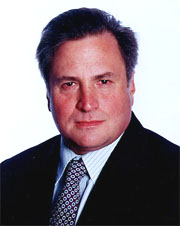 By Dick Morris October 29, 2003
The Democratic presidential races usually feature a thematic competition that foreshadows the earliest of primaries and determines the eventual nominee. The tough part is figuring out what this pivotal contest is about. Often, it is only apparent after one candidate has won it. For example, Mike Dukakis won the 1988 nomination because he proved that he could raise more money than any of his rivals. By beating Dick Gephardt, Al Gore, Jesse Jackson and the others in the financial primary, he was able to pile up victories in the various key states and secure the nomination. In 1992, Bill Clinton won the image primary. A party adrift, lacking confidence in its ideas, found the "new" Democratic Party heralded by the moderate governor from the Democratic Leadership Council most attractive. By offering a way out of the liberal dogma that had doomed Jimmy Carter, Walter Mondale and Dukakis, the three previous nominees, Clinton turned on the party's thinkers, writers, and movers with his pledges to "end welfare as we know it," to support a "middle-class tax cut" and to back capital punishment. In 2000, Al Gore defeated former Sen. Bill Bradley in the audition primary, waged largely in their debates, where the two competed to see who could be more aggressive and forceful in attacking the Republicans. Bradley's diffidence and restraint, contrasted with Gore's tough attacks, made the former athlete seem too weak to take on Bush. In 2004, it appears that the activist primary is the key. By using the Internet to mobilize hundreds of thousands of cyber-roots volunteers and donors, former Vermont Gov. Howard Dean has staked out an early lead that is likely to hold up and give him the nomination. Using his 500,000 online supporters to raise $15 million in the past quarter (three times his nearest rival's take), Dean has built up a substantial national base while challenging Gephardt in Iowa and John Kerry in New Hampshire. Dean realizes that four years of GOP rule have left Democrats angry, frustrated and determined to lash back. By opening his Internet portal to these militants, he has offered a living, interactive campaign where ordinary men and women can make a difference. In the Gephardt or Kerry campaigns, you are invited to write a check. In the Wes Clark campaign, one can tune in and watch the candidate on television. But Dean urges activists to bring in their family and friends, clicking on the Web as they migrate to his candidacy. As a result, the Dean campaign is just larger than anybody else's - more donors, more workers, more activists. Clark thinks he is still back in 1992, using the Clinton playbook to win the image primary. He hopes that by tapping into the historical paradigm of the general-as-a-man-of-peace, he can score where past generals have. He's read his history. Ulysses S. Grant was elected president not only for his military prowess, but for his words at Appomattox: "Let us have peace." Dwight D. Eisenhower surged to victory in 1952 not only by summoning the memories of D-Day, but also by pledging "I shall go to Korea" to end the sanguinary stalemate that drained more than 40,000 American lives. Clark has won his image primary and Dean has won the activist primary. No candidate can match the attractive image Clark has created as the general-as-a-man-of-peace, nor can any come close to equaling the swelling ranks of the Dean campaign. Kerry, Gephardt, Joe Lieberman and John Edwards have lost out on both counts - their images attract no coverage and their campaigns get few volunteers. In a sense, Clark vs. Dean
is the classic confrontation of the TV-image candidate vs. the
party activists' choice. It's either the first battle of the
post-TV era or the last hurrah of media power. My bet is that
it is the herald of the new age.
dmredding@aol.com Dick Morris was an adviser to Bill Clinton for 20 years. Morris is a political consultant, commentator and best selling author. Look for his newest book, "Power Plays" available now and look for Dick's new book, "Off With Their Heads - Traitors, Crooks & Obstructionists In American Politics". Distributed by Cagle Cartoons, Inc. to subscribers for publication.
|
||
